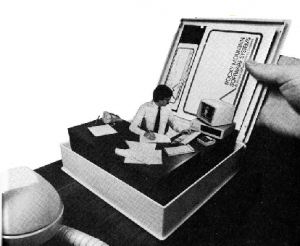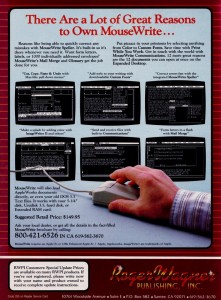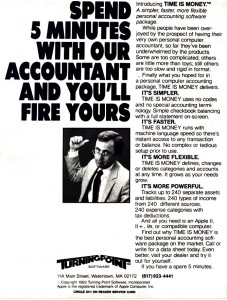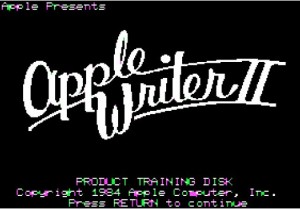The Internet Archive continues its goal of bringing the same experience of older software that we have with movies, books and audio. This newest collection, just in time for Valentine’s Day (?), is called The Business Case, and is a continually-growing exhibit of business-related software.
Unlike the previous announced collection of entertainment software (the Console Living Room), these programs are all aimed at the early days of home computer ownership, when the reason for spending hundreds or thousands of dollars on these systems wasn’t always very clear cut. Why drop a significant amount of money for something that beeped and made pretty pictures (or not even pretty pictures)? Well, one reason might be to write, calculate and track financial and business information, as well as utilize word processors for faster correspondence.
Some important facts about browsing and using this collection.
Unlike the Console Living Room, a lot of these programs are not self-evident. They had complicated instructions, and often utilized massive manuals and accompanying documentation, which is not available for many of the items. Others required the use of a modem or printer, which the emulator at archive.org does not currently provide – they will fail out or give errors if you try and use them.
Additionally, some of these programs are “cracks”, cases where the original floppy disks of the programs have been modified to allow for easier booting, or copying. We included them to bring into sharp focus a real problem: software preservation for the computer programs not lucky enough to be games or famous is spotty at best and non-existent at worst. While the world has thousands of pages dedicated to the history of Pac-Man and Doom (many of them archived in the Wayback Machine), in some cases, the only evidence online that a program ever existed is the modified-for-copying version of a spreadsheet application. In an ideal world, the academic researcher or curious onlooker could experience and understand the context of every program released, or at least get an analogue of the experience. In many cases, this just isn’t possible.
Where we can, we will expand and grow this collection, as well as improve and update the entries already in the collection to reflect the part they played in history. If you are familiar with a given program, or can provide more information, contact Jason Scott at the archive.



